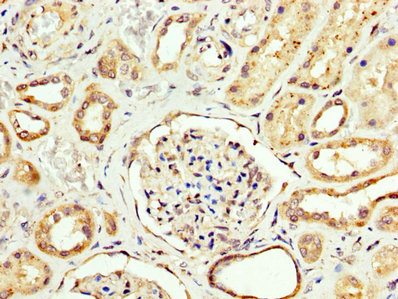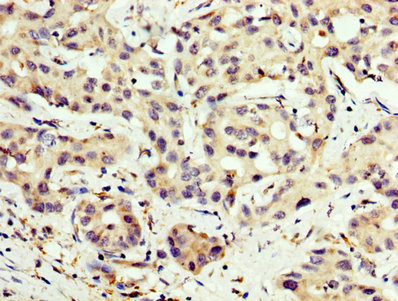Full Product Name
Rabbit anti-Homo sapiens (Human) CPT2 Polyclonal antibody
Alternative Names
Carnitine O palmitoyltransferase 2 antibody; Carnitine O palmitoyltransferase 2 mitochondrial antibody; Carnitine O-palmitoyltransferase 2 antibody; Carnitine palmitoyltransferase 2 antibody; Carnitine palmitoyltransferase II antibody; CPT 1 antibody; CPT 2 antibody; CPT II antibody; CPT1 antibody; CPT2 antibody; CPT2_HUMAN antibody; CPTASE antibody; CPTII antibody; IIAE4 antibody; mitochondrial antibody
Immunogen
Recombinant Human Carnitine O-palmitoyltransferase 2, mitochondrial protein (388-551AA)
Immunogen Species
Homo sapiens (Human)
Conjugate
Non-conjugated
The CPT2 Antibody (Product code: CSB-PA005925LA01HU) is Non-conjugated. For CPT2 Antibody with conjugates, please check the following table.
Available Conjugates
| Conjugate |
Product Code |
Product Name |
Application |
| HRP |
CSB-PA005925LB01HU |
CPT2 Antibody, HRP conjugated |
ELISA |
| FITC |
CSB-PA005925LC01HU |
CPT2 Antibody, FITC conjugated |
|
| Biotin |
CSB-PA005925LD01HU |
CPT2 Antibody, Biotin conjugated |
ELISA |
Purification Method
>95%, Protein G purified
Concentration
It differs from different batches. Please contact us to confirm it.
Buffer
Preservative: 0.03% Proclin 300
Constituents: 50% Glycerol, 0.01M PBS, pH 7.4
Tested Applications
ELISA, IHC
Recommended Dilution
| Application |
Recommended Dilution |
| IHC |
1:200-1:500 |
Storage
Upon receipt, store at -20°C or -80°C. Avoid repeated freeze.
Lead Time
Basically, we can dispatch the products out in 1-3 working days after receiving your orders. Delivery time maybe differs from different purchasing way or location, please kindly consult your local distributors for specific delivery time.
Usage
For Research Use Only. Not for use in diagnostic or therapeutic procedures.








